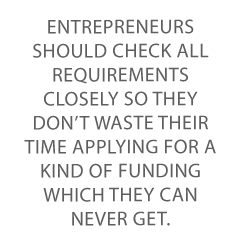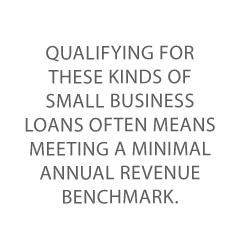Are you looking for a way to cover the cost of payroll but monthly and annual revenue aren’t cutting it yet? Then you need payroll loans for small businesses. Payroll funding can help you pay your employees on time, even if your cash flow isn’t flowing as well as it should.
What is a Payroll Loan?
A payroll loan serves as a type of funding to help small businesses pay their employees. There are several forms of small business funding that can be used as payroll loans. These include a business line of credit and invoice financing.
That is because they fund quickly enough to cover your payroll costs. Most lenders will consider payroll as a general working capital expenditure. As a result, these small business loans are often a lot like working capital loans.
The Paycheck Protection Program served as a kind of payroll loan program. But a PPP loan is not a viable financing option anymore. Rather, you’ll need to get working capital some other way.
But keep in mind that working capital loans in general are going to come with higher interest rates than a typical long-term loan.
The kinds of working capital loans that can serve as payroll loans also include a standard short-term loan and a merchant cash advance. Eligibility will depend on annual revenue, business, and personal credit score, time in business, and more.
If a small business cannot meet payroll with profit, then payroll funding is an outright necessity.
Paying your employees their fair wages isn’t just the right thing to do. It’ll also help to prevent them from quitting en masse if you can’t pay them.
Considering how difficult it is to hire these days, a small business cannot afford to have that happen.
How Does a Payroll Loan Work?
The precise way that payroll loans will work is going to, naturally, depend on which payroll financing type you choose. And keep in mind that payroll means more than just salaries. It also means payroll taxes and employee benefit costs.
In general, payroll loa ns will have terms of one year or less. They will have an interest rate that will vary. Due to having such a short loan term, and the need for fast funding, payroll loans will have higher interest rates when you compare them to other types of small business loans.
ns will have terms of one year or less. They will have an interest rate that will vary. Due to having such a short loan term, and the need for fast funding, payroll loans will have higher interest rates when you compare them to other types of small business loans.
Due to the short-term nature of such loans, a lender is more likely to require daily or weekly payments for payroll funding. This is in contrast to a longer-term monthly repayment schedule.
Terms are often for three to eighteen months. An online lender in particular can often get small business owners same-day funding. Loans from the SBA will take a lot longer.
Providers of payroll financing range from traditional banks and credit unions to the SBA to online lenders.
Requirements will vary depending on the type of business, the lender, and the type of business financing for payroll. Entrepreneurs should check all requirements closely so they don’t waste their time applying for a kind of funding that they can never get.
Types of Payroll Loans
Payroll Loan Type 1 – a Business Credit Card
With a credit card for your business, you can avoid having to take out a personal loan. But you will need to know how to build business credit to make sure your personal credit and assets are protected in case of default.
If your business credit card reports to a business credit reporting agency, then you can improve your business credit score. But only if you pay back your balance on time.
If you do not, then the interest rate for a corporate credit card can make this one of the more expensive financing options.
For a business owner with a bad credit score, it will be harder to get credit approval for one of these cards.
Payroll Loan Type 2 – an SBA Loan
The Small Business Administration (directly under the US Treasury Department) provides a few kinds of small business lending.
The 7a is their most popular loan choice. Small business owners can use a 7a for several purposes, including for payroll financing.
However, keep in mind that the SBA wants to see a lot of documentation before you will see any cash. Also, they aren’t exactly fast. If you can wait a few months for cash, then this is a viable form of financing.
But if it’s an emergency, you will do better to look for small business funding elsewhere.
The maximum loan amount is $5 million.
Payroll Loan Type 3 – a Merchant Cash Advance
For business owners who are in more of a bind and need cash ASAP, a business cash advance can be the way to go.
Instead of being a loan, these are an advance on future sales. Your payment will be automatically taken from credit and debit card transactions on a daily or weekly basis.
Be aware that you will pay for that kind of speedy cash—in the form of a high-interest rate and probably a short-term to pay the loan back.
This form of payroll financing takes advantage of your dire need for cash now. If you can wait for a small business loan, then you can often find a better financing choice than an MCA.
Payroll Loan Type 4 – an Online Small Business Loan
When you work with a lender like Fora Financial or Funding Circle, you can get a small business loan or business line of credit quickly. Often, the FICO score and revenue requirements are lower.
But keep in mind that Fora requires that your business have annual revenue of at least $150,000. You will also have to be in business for at least 6 months, with a FICO score of 500 or better.
However, Funding Circle only wants $50,000 in yearly revenue, but you do have to be in business for at least 2 years. Plus, your FICO score must be at least 660.
With Funding Circle, you can get a term loan for up to $500,000. Their business line of credit goes up to $150,000.
How to Qualify for Payroll Loans
Qualifying for these kinds of small business loans often means meeting a minimal annual revenue benchmark. It also tends to mean having a certain amount of time in business. There are often minimal personal credit score requirements as well. 
Payroll Lending Based on Time in Business
Newer businesses will be more likely to qualify for starter vendor business credit cards and online lending. More seasoned businesses will be more likely to qualify for SBA lending.
Payroll Lending Based on Sales and Annual Revenues
Businesses with consistent credit card sales will be more likely to qualify for MCAs.
Online lenders and some credit card providers will want to see a certain minimal amount of yearly revenue. For SBA loans, you’ll need to show revenues. But for a 504 loan, it’s to prove your business isn’t making too much in a year.
Payroll Lending Based on Credit Scores
For entrepreneurs with poor FICO scores, MCAs and possibly business credit cards will be their best bet. Some online lenders may offer a way for these entrepreneurs and their businesses to get money.
Entrepreneurs with good personal credit scores (700s and better) can also work with more traditional lending institutions such as banks and credit unions. Entrepreneurs with middle of the road credit scores will qualify for many forms of online lending, and possibly also SBA lending.
Excellent consumer credit will help businesses get nearly any type of payroll finance. You will benefit in two ways when trying to get a card, as good consumer credit will raise FICO SBSS and Experian business credit scores.
Outstanding consumer credit may also serve to offset less than adequate revenues, particularly for online lending institutions.
Pros of Payroll Loans
There are a number of positives associated with payroll lending.
Personal Asset and Credit Protection
Unlike a personal loan, you can use these types of business financing to improve your business credit without putting your personal possessions and credit at risk.
Seasonal Business Benefits
For a seasonal business in particular, this kind of business funding can cover cash flow shortfalls. A small business can bring on additional personnel before it has the profits to pay them, in anticipation of such profits.
For the December Christmas rush, for example, a company can hire additional staff in November to get a store ready, train its new personnel, and identify the best ways to deploy its new staffers.
Then on Black Friday and into December, those new staff members can hit the ground running and make sales. Payroll lending can even cover if a number of January returns undercut the business’s December profits.
Taking Advantage of Time-Limited Opportunities
Like with many forms of corporate lending, payroll finance can help a small business take advantage of limited-time opportunities.
If a business has salaries, benefits, and payroll taxes taken care of, it can buy inventory when it’s less expensive. The business can put a down payment on a building or snap up lower-cost equipment as well.
Employee Retention
It’s no secret that good help is hard to find—and keep. Inconsistent salaries and bounced checks do not make for a happy working environment. The least expensive employee is the one who you already have.
According to Indeed, it costs about $4,000 to $20,000 to bring in a new employee, and that’s before figuring in their salary.
In addition, if one employee quits, others may leave in their wake. Being unable to meet payroll costs can have a cascading effect on a business. Payroll lending helps prevent that.
Cons of Payroll Loans
At the same, there are a number of downsides when it comes to payroll lending.
You Will Have to Pay Them Back Some Time
It’s not a grant, and it’s not crowdfunding. It’s debt.
With the PPP program is long gone, you cannot rely on the potential for loan forgiveness. As a result, interest rates and lending terms should be checked before you sign on for any sort of debt. Make certain that your business can comfortably repay its debts.
And do not expect to be able to just discharge this debt in a business bankruptcy. It is considerably more prudent to operate under the assumption that you cannot.
Seasonal Businesses Should Not Rely on Payroll Lending to Make Up for Bad Business Decisions
A seasonal business or one which is gambling on a new product line or the like becoming profitable will not be able to pay these loans back if their gamble turns out to be a loser.
The availability of payroll lending should not give a business license to be irresponsible. New products and markets should be carefully vetted. Entrepreneurs should do research and test before expanding their business offerings.
But this kind of issue will also be the case if a business is waiting for payment on outstanding receivables. Customers who are not reliable when it comes to paying are going to cause problems. Yet a business cannot always choose its customer base.
If a customer does not pay their bills, then the business will not be able to pay back its payroll loan. This can have a domino effect on the business.
Payroll Lending Could be Hiding a More Systemic Issue With a Business
Also, keep in mind that a business that is consistently behind on cash flow is likely to be suffering from systemic problems. Payroll lending is a band-aid solution at best for a business that is hemorrhaging money.
Takeaways
Small business payroll loans can be a lifesaver for businesses with uneven cash flow issues. Seasonal businesses in particular can benefit from ready cash to pay their employees.
But this type of business finance can come with short payback periods and high-interest rates.
Confused by all your options? Credit Suite can help you weigh your options and show you funding opportunities you may not have thought of.
Contact us today to find out more about what your small business can qualify for.

